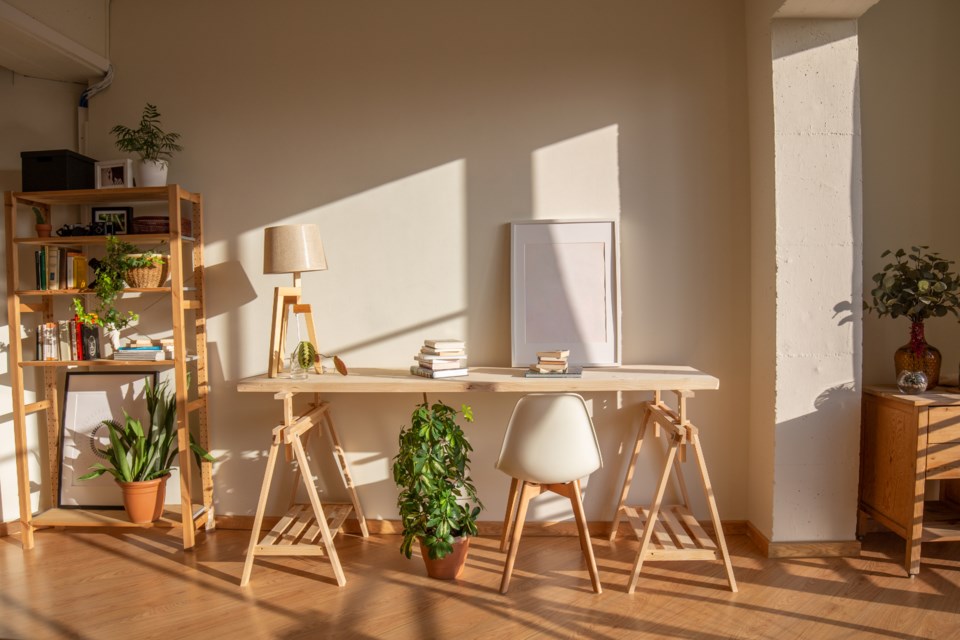STACKER.COM — Finding time to clean and organize your home in between all the other tasks on your busy to-do list can feel like a challenge.
But tackling your overflowing closet might have more benefits than just a tidier bedroom: have shown that clutter in your home can make it increasingly difficult to focus on tasks, and have demonstrated that organizing your home can help you manage your stress and give a better sense of control.
However, this can be easier said than done—especially knowing that Americans tend to rather than decluttering by paring down their belongings.
Fortunately, there’s hope for us all, thanks to organizing experts like Marie Kondo, who offers a wealth of organization hacks on her Netflix TV show, “Tidying Up with Marie Kondo.”
Celebrities even joined in on the decluttering trend while quarantining amid the early days of the COVID-19 pandemic.
Some notable names included “Real Housewives of New Jersey” star Dolores Catania, who with help from designer Robin Laura, and Jen Atkin, a hairstylist to the stars, who of RíOrganize to revamp her kitchen.
found insights shared online by realtors, interior designers, and home staging experts to find the smartest ways to increase or utilize storage in every room of your home. This list covers 10 rooms—from bedrooms to kitchens to garages—with ways to expand and streamline storage in each one.
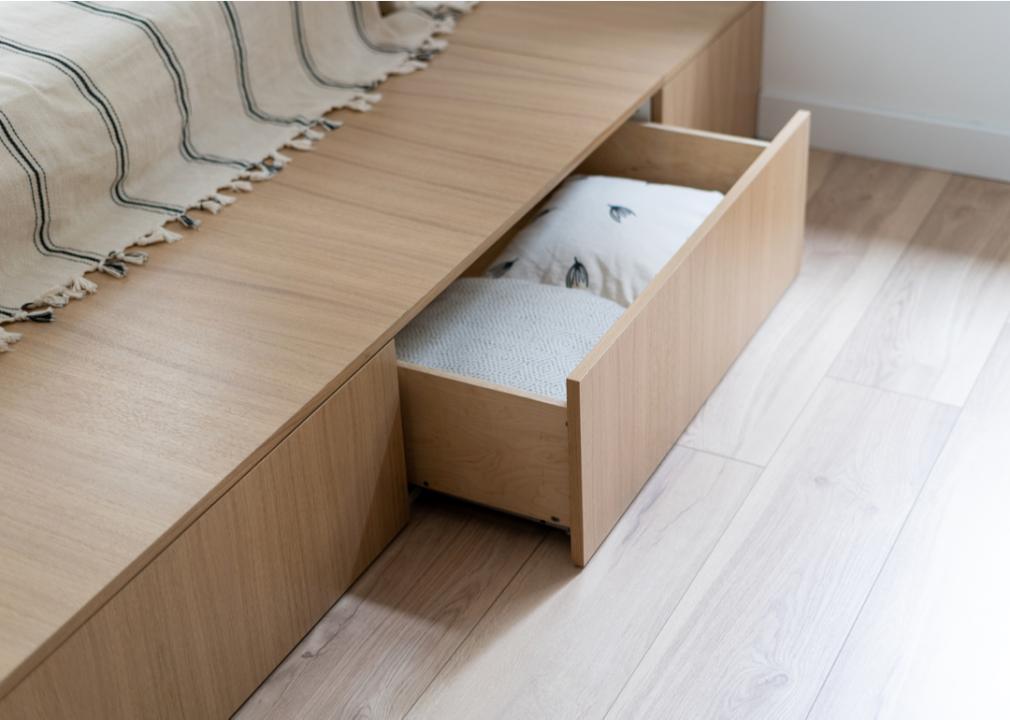
brizmaker // Shutterstock
Bedroom
Between piles of laundry, clothes, shoes, and blankets, it’s easy to see how a bedroom can easily become cluttered.
So, you probably won’t be surprised to know that the bedroom is , according to a 2020 survey by home decor company Joybird.
Luckily, you can take a couple of simple steps to better organize your bedroom.
Start with the bed and take advantage of any space you have under it to stash items you don’t use often. You won't take up any additional floor space—and you'll keep items out of sight. C
reating designated spaces for every item can make a big difference as well, like getting a jewelry box for your valuables, keeping books and tissues on a nightstand, and using door hooks to hang robes, jackets, coats, and shoes.
Making your bed every day can also make your bedroom feel more organized and put together.
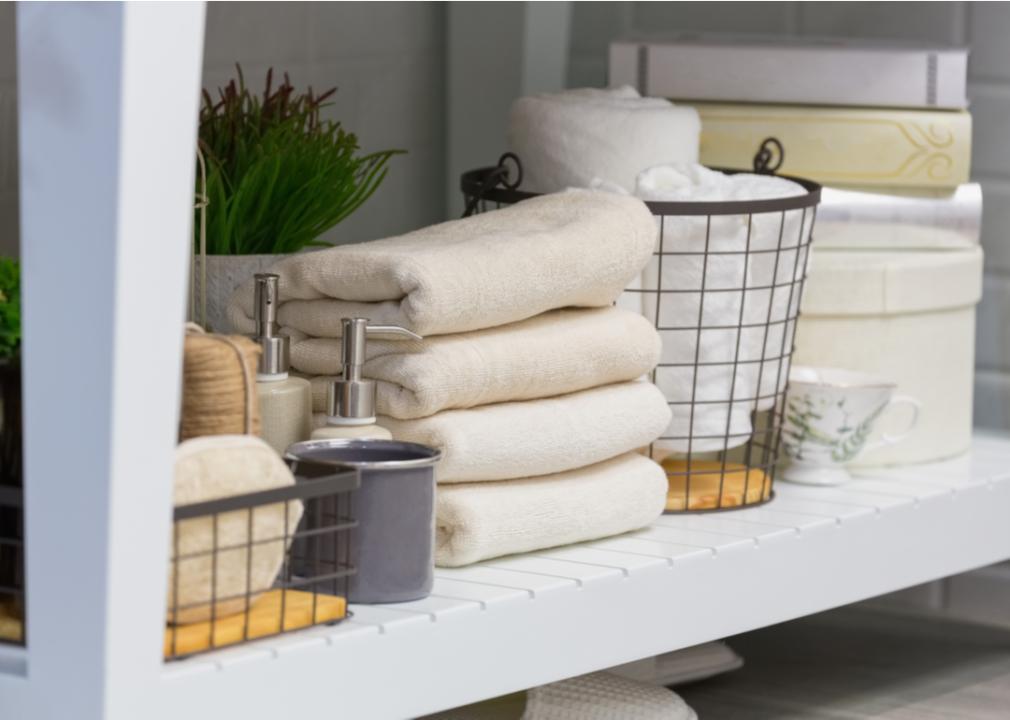
WichitS // Shutterstock
Bathroom
Not only can bathroom counters quickly become crowded with makeup, hair products, grooming kits, and towels, but these messes can also make this room pretty unhygienic.
Organizing your bathroom so you can easily find your belongings and clean effectively can make your morning routine much less hectic.
Consider using storage tools like baskets and ladder shelves to keep towels from piling up on the floor.
Place daily cosmetics and hair products in organizing bins on counters and stash the rest in drawers or cabinets. And if you find yourself frustrated by all the products cluttering your shower, a shower caddy can be a simple, all-in-one fix so you can worry less about knocking items over or tripping over bottles.
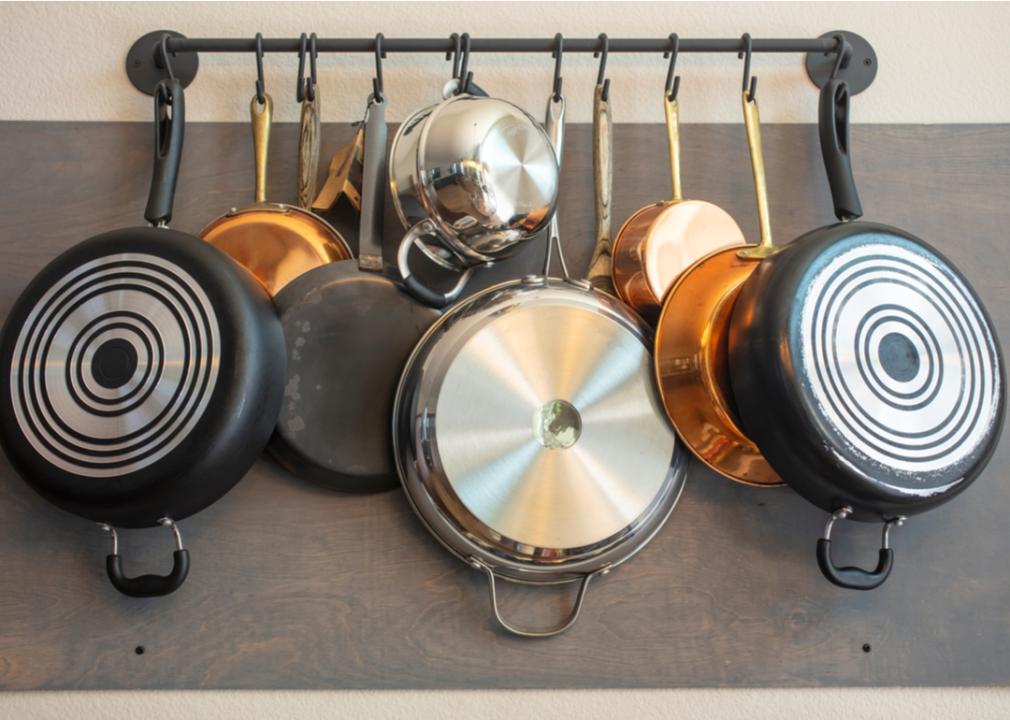
Malisa Nicolau // Shutterstock
Kitchen
Between pots, pans, utensils, dishes, cutlery, and food, keeping your kitchen neat can feel like an almost impossible task, especially if you have limited space. Don’t stress, though—you’re not alone. The kitchen is in the house, surpassed only by the living room.
Thankfully, there are lots of creative approaches to , like making the most of the space above your cabinets. Here, you can store items that you might not use every day, like special pans or cooking gadgets.
Organizing inside your kitchen cabinets can make a big difference, too, so consider cutting back on any items you have duplicates of (or stash them above the cabinets)—such as coffee mugs, cups, and water bottles—to make space for other important utensils.
Another useful tip: Free up counter space and drawers by going vertical. Add wall hooks, over-the-door hooks for cabinets, under-counter trays, and stacking bins to store pans, oven mitts, and other kitchen tools.
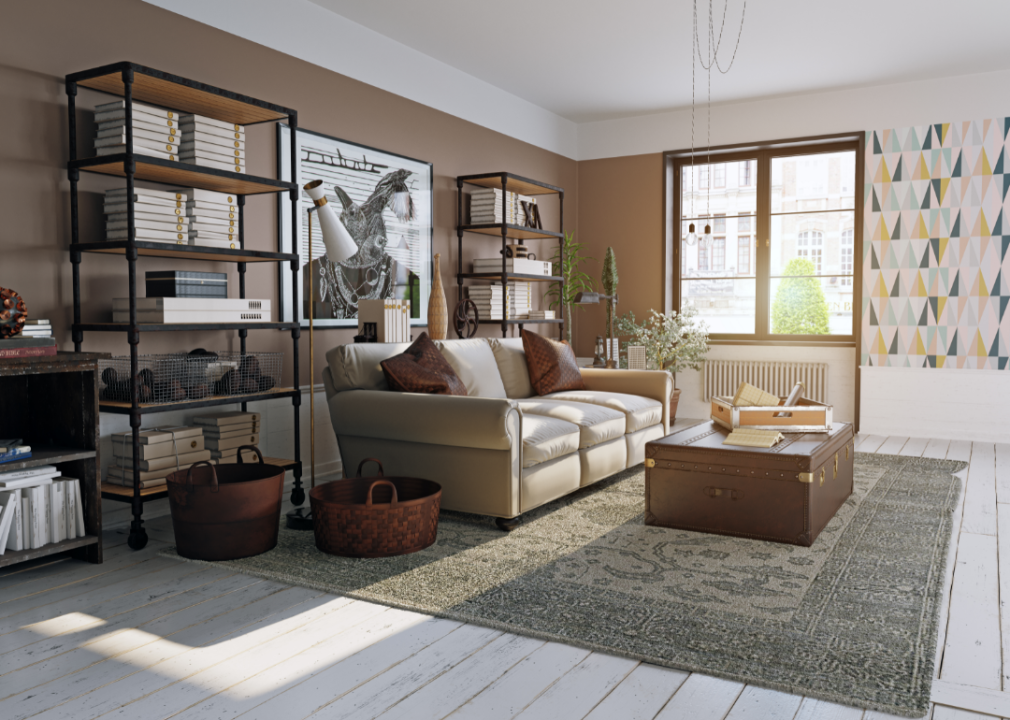
Canva
Living room
The is the living room, and this may be because it's often the first space you enter after walking through the front door.
It’s easy for every family member to come home and set stuff down on a table or chair, then immediately forget about it.
Investing in a coffee table with storage space can be a strategic way to help with clutter as you can store remotes, papers, and other odds and ends out of sight.
While they can take up a lot of space, entertainment centers can also help you stay organized.
They typically offer large cabinets and drawers that you can designate for electronics, books, and other items that would otherwise clutter the room. Baskets or trunks add a decorative touch while also collecting blankets, pillows, and toys.
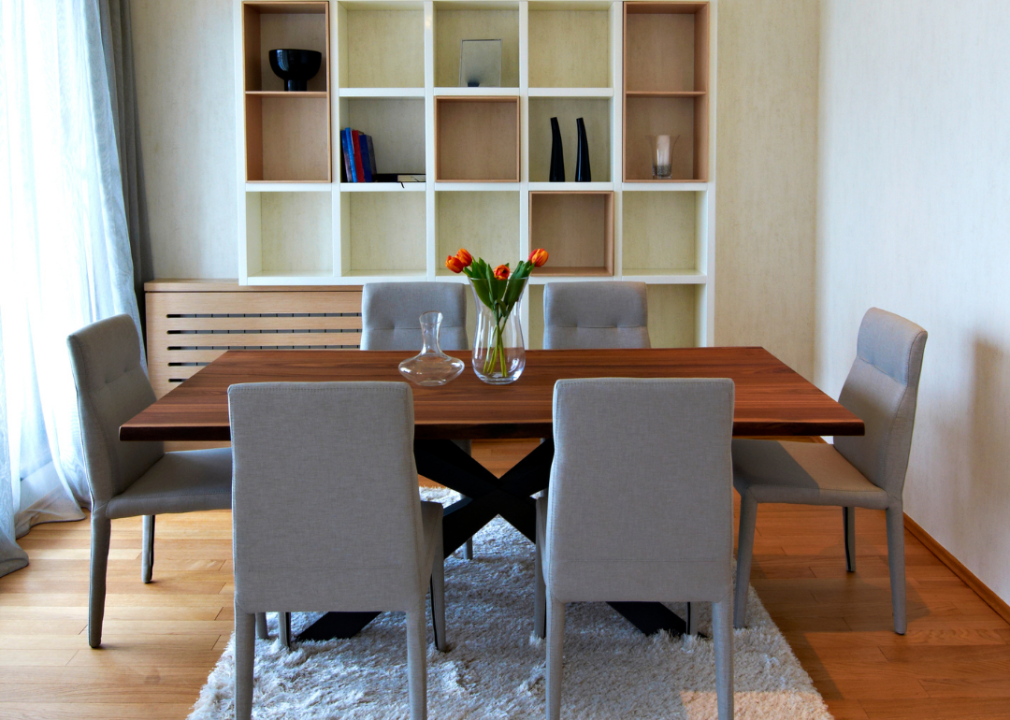
Canva
Dining room
It’s easy to start piling paperwork, coats, and bags on the dining room table, especially if you don’t use it much. This is because dining rooms are typically close to the kitchen or living room, some of the most heavily-used spaces in the home.
By incorporating hooks and baskets in this space, you can create designated storage areas for your coats, bags, and all of your mail, which can help keep your dining room clutter-free.
You may also want to consider decorating your dining room table with a centerpiece, for example, which could help make family members less tempted to pile unnecessary items there. Investing in cabinetry or hanging wall organizers with plenty of shelves and paper slots can also provide you extra storage space as well, particularly for things like mail, magazines, and newspapers.
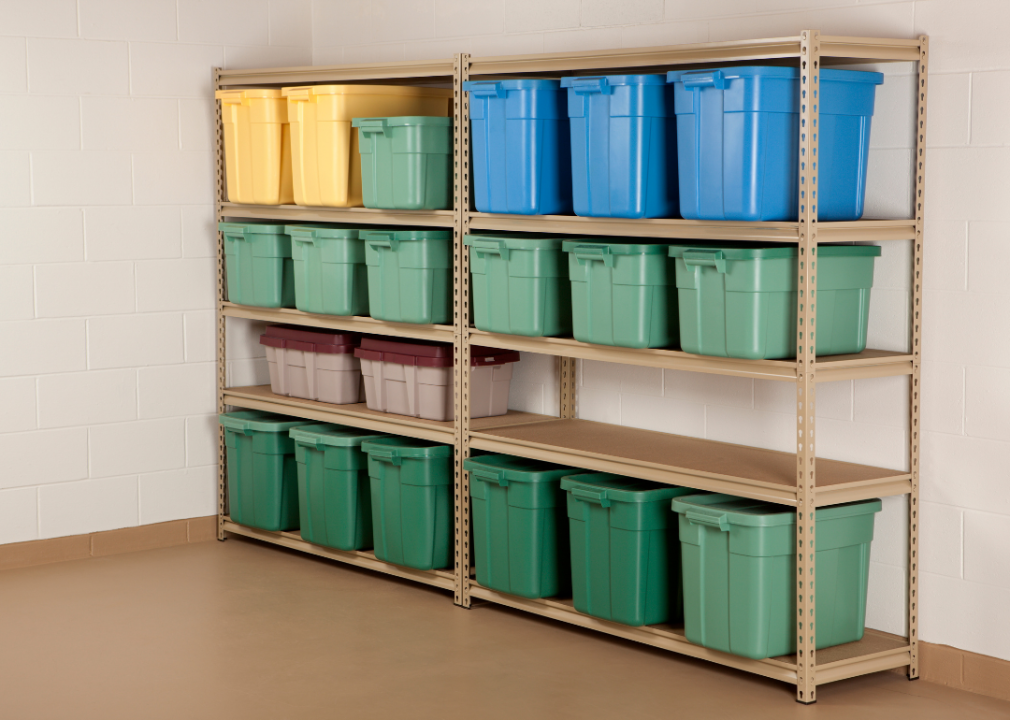
Canva
Basement
Often, the basement is where little-used household items end up as people look for ways to make more room upstairs. This can lead to your .
As these items start collecting dust, it's the perfect time to start going through those forgotten boxes to decide which items to keep, throw away, or donate. Add storage bins to organize the items you want to keep and stack them vertically to save floor space.
To keep your basement from getting cluttered again, make sure to mark and label your storage containers so you can store similar items together and easily find items you might need down the road.
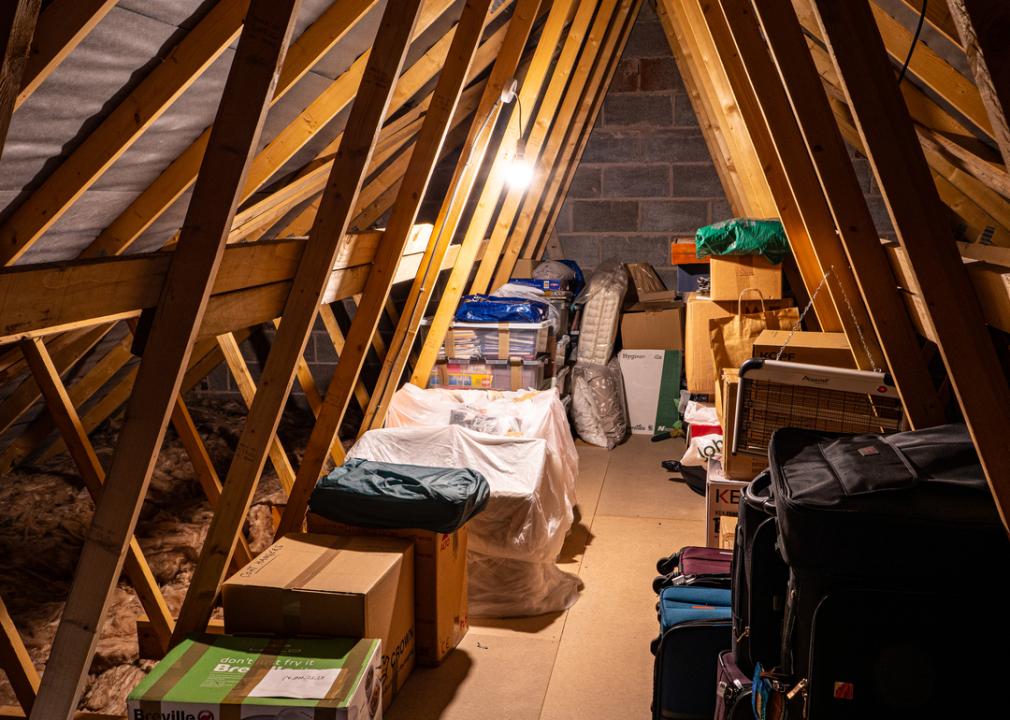
Graham King // Shutterstock
Attic
The attic, like the basement, is another area of the home that can easily go neglected and become overrun with items you don’t actually need.
After all, out of sight, out of mind, right?
To start, go through all of the boxes, bins, and piles of stuff you’re keeping up there and toss or donate the items you know will never see the light of day again. Then you can decide how you want to organize the items you still want to keep in your attic, placing them in airtight storage bins to keep out dust.
Be sure to label the bins and consider getting storage shelving to organize the containers in one location.
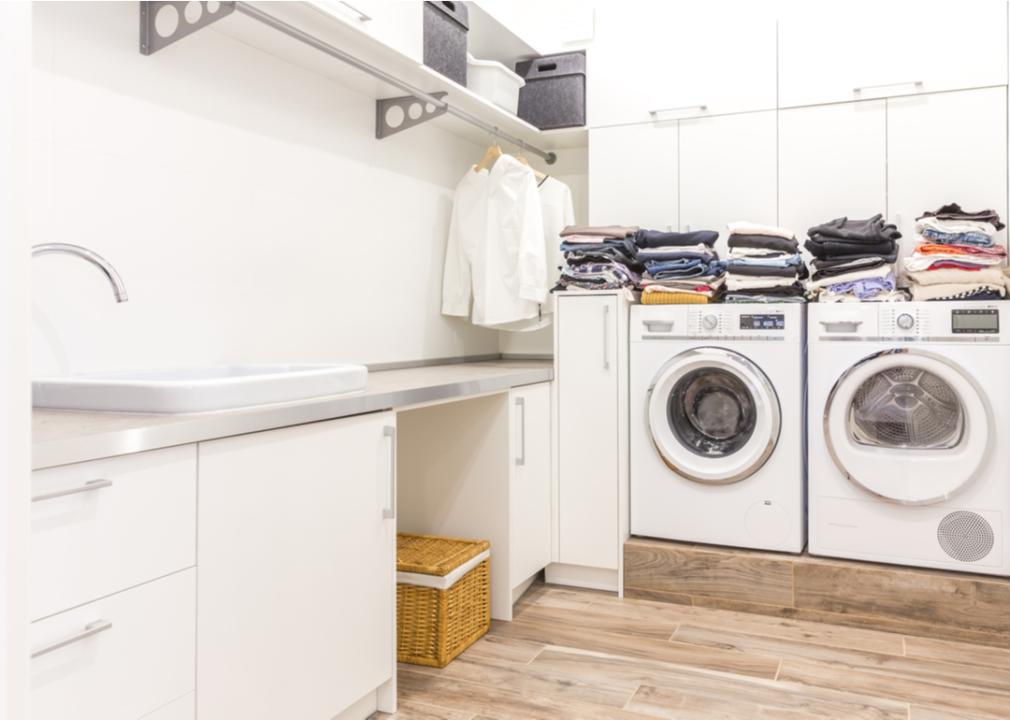
mariakray // Shutterstock
Laundry room
The laundry room can quickly become a headache with piles of both clean and dirty laundry, cleaning detergent, dryer sheets, and stray socks. This is also an area where many people tend to store cleaning products as well, so it’s easy to see how disorganized the laundry room can become.
When rethinking your laundry room, be sure to create a designated space for everything: Get colored laundry baskets to keep dirty laundry separate from clean clothes, and keep them in separate areas of the room. Put up clotheslines where you can hang dry clothing that shouldn’t go in the dryer.
Staying on top of your laundry and not letting clothing sit in your laundry room for days at a time can also help with decluttering that space.
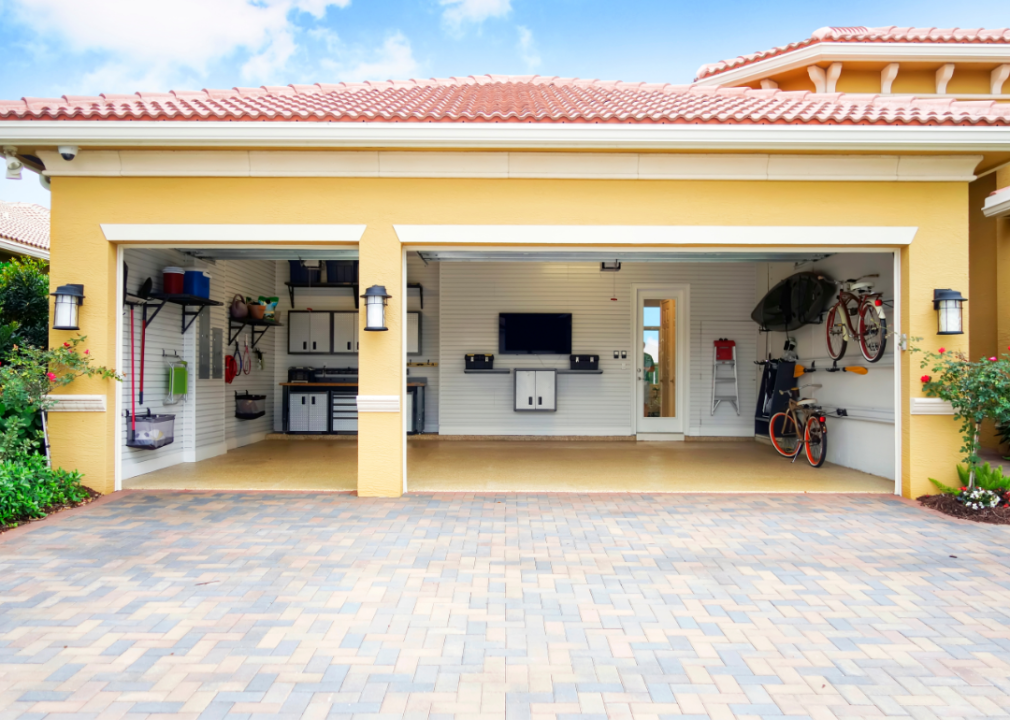
Canva
Garage
Between tools, equipment, and outdoor gear, your garage can quickly turn into a dumping ground for random items.
Not only that, but it can also be a dangerous area of your home if you leave tools or chemicals scattered on counters and floors.
To get ahead of this, consider getting a installed. While they can be pricey, they may prove worth the effort as they provide an easy solution to decluttering your garage.
Another way you can better organize your garage space is to put up hooks and shelves on the walls where you can place tools and equipment so they are out of the way. Employing shelving and racks can also help create organizational space, as can toolboxes for your workbench.
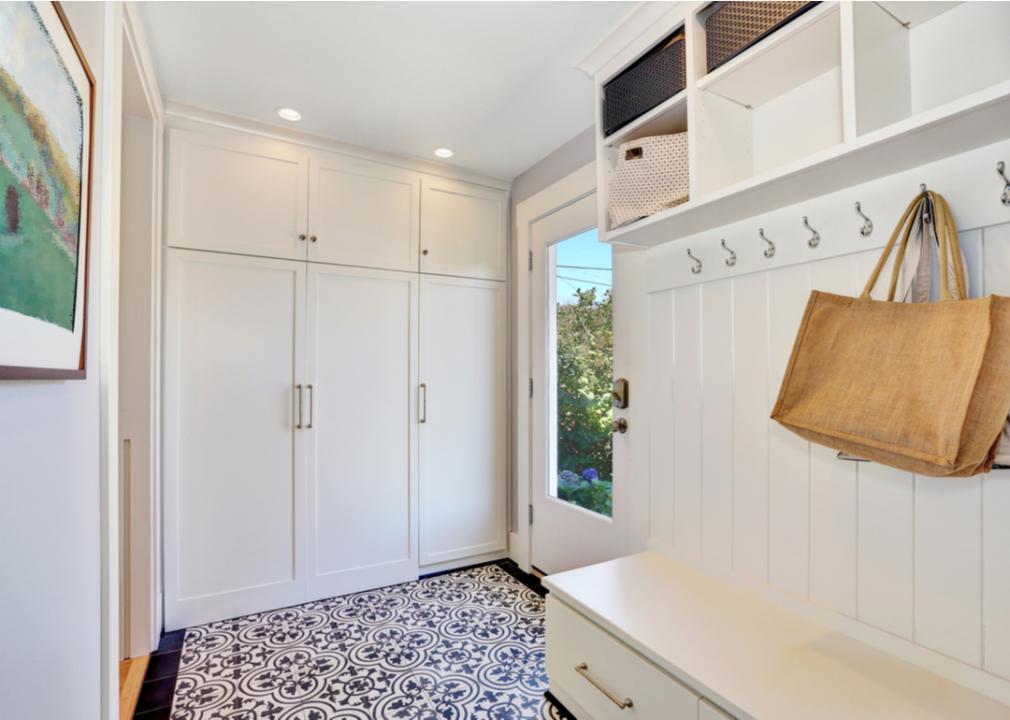
Artazam // Shutterstock
Hallway
Because hallways tend to be much smaller spaces than the rooms in your home, they can quickly get cluttered when items are left there. For instance, it’s not uncommon to find shoes, coats, and jackets sprawled around your hallway.
Even though there’s not a lot of space to work with here, there are still ways you can organize the hallways in your home. For example, try including a narrow table or credenza if it will fit, or invest in adding wall cubbies or small shelves with hooks to stash items like bags and car keys that are easy to lose on the way in and out of the house.
This story originally appeared on Angi and was produced and distributed in partnership with Stacker Studio.
